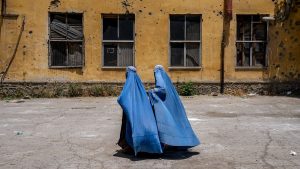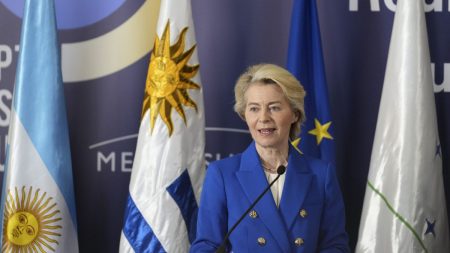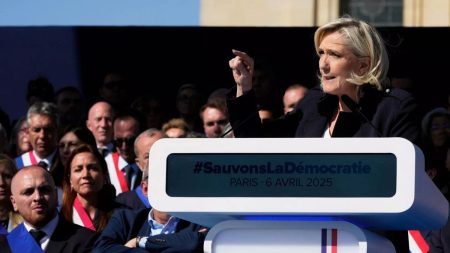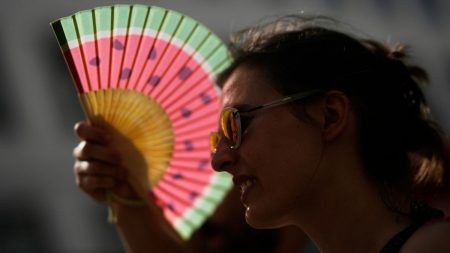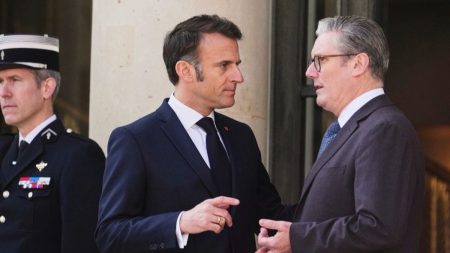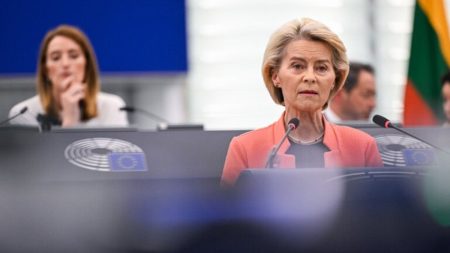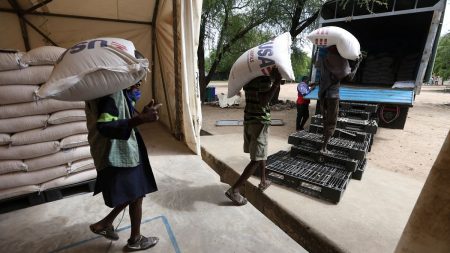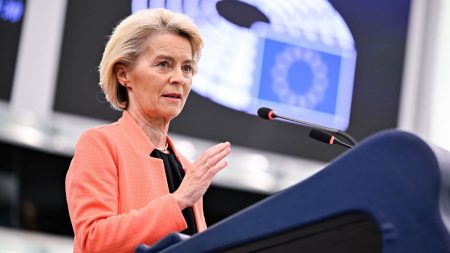Thousands of demonstrators gathered around the Georgian Parliament in Tbilisi to express their dissatisfaction with the government’s recent decision to suspend European Union (EU) accession talks for four years. The protests intensified after Prime Minister Irakli Kobakhidze, representing the ruling Georgian Dream party, announced that discussions regarding the country’s bid to join the EU would not resume until the end of 2028. This involved a significant political backdrop as the announcement came on the heels of a European Parliament resolution criticizing Georgia’s recent elections held on October 26, which were deemed marred by serious irregularities. The international community has placed the onus of responsibility on the ruling party for the perceived erosion of democratic processes in Georgia, raising concerns over intimidation of voters, vote manipulation, and the interference with electoral observers.
The European Parliament explicitly condemned the elections, urging that they should be re-held with international supervision within a year and calling for sanctions against Georgian officials, including Prime Minister Kobakhidze. In response, Kobakhidze affirmed Georgia’s identity as a European state and stressed the importance of bilateral relations with the EU, asserting that the integration into the EU should not be treated as a favor. He expressed a firm stance that his government would reject any EU funding after the bloc had suspended budgetary support due to what were seen as anti-democratic measures, including the controversial “foreign agent” law. The opposition party in Georgia has boycotted the newly formed parliament, which has allowed Kobakhidze’s government to maintain authority despite the controversy surrounding the elections.
Despite the unprecedented tensions, Kobakhidze labeled the EU membership bid as temporarily paused rather than abandoned, suggesting that his administration would use the next four years to implement reforms that would better position Georgia for future EU integration talks. He assured the public that by 2028, Georgia would be prepared to not only resume discussions but could also become a full member state by 2030, paralleling the aspirations of various candidate countries. This timeline appears challenging as the opposition maintains a steadfast refusal to recognize the legitimacy of the new parliament and its procedures, leaving many seats unfilled by opposition members.
The protests stemming from this political turmoil indicate a profound discontent within the Georgian populace regarding the ruling party’s decision-making and the integrity of the democratic process. Citizens who once celebrated their EU Candidate Status in December 2022, following their formal application in March of that year, now feel betrayed by the government’s recent actions. Tbilisi’s streets have become a venue for expressing frustration and calling for transparency, as protesters pledge to continue their demonstrations until tangible changes are made in the political landscape.
Kobakhidze’s assertion that Georgia’s EU ambitions are on a temporary hold resonates differently among various factions within the country. While supporters may view this as a pragmatic approach to reform and readiness, the broader opposition perceives it as a capitulation to a government that has strayed from democratic principles. The Prime Minister’s resolve to refuse EU funding could further isolate Georgia from the support mechanisms designed to promote democratic stability and governance. This defiance, coupled with protests, reflects a divided public sentiment toward the future direction of the country’s EU aspirations.
The situation is particularly acute given the recent history of Georgia and the ongoing ramifications of Russia’s invasion of Ukraine, which prompted heightened aspirations for European integration. The frustrations witnessed in Tbilisi may symbolize a deeper struggle within Georgia to reconcile national pride with the global imperative for democratic governance. With each passing day, the challenges to the ruling party intensify as the opposition and the public press for accountability and a return to the path of democratic reform, making the stakes for the country’s EU accession and internal stability ever more critical.
